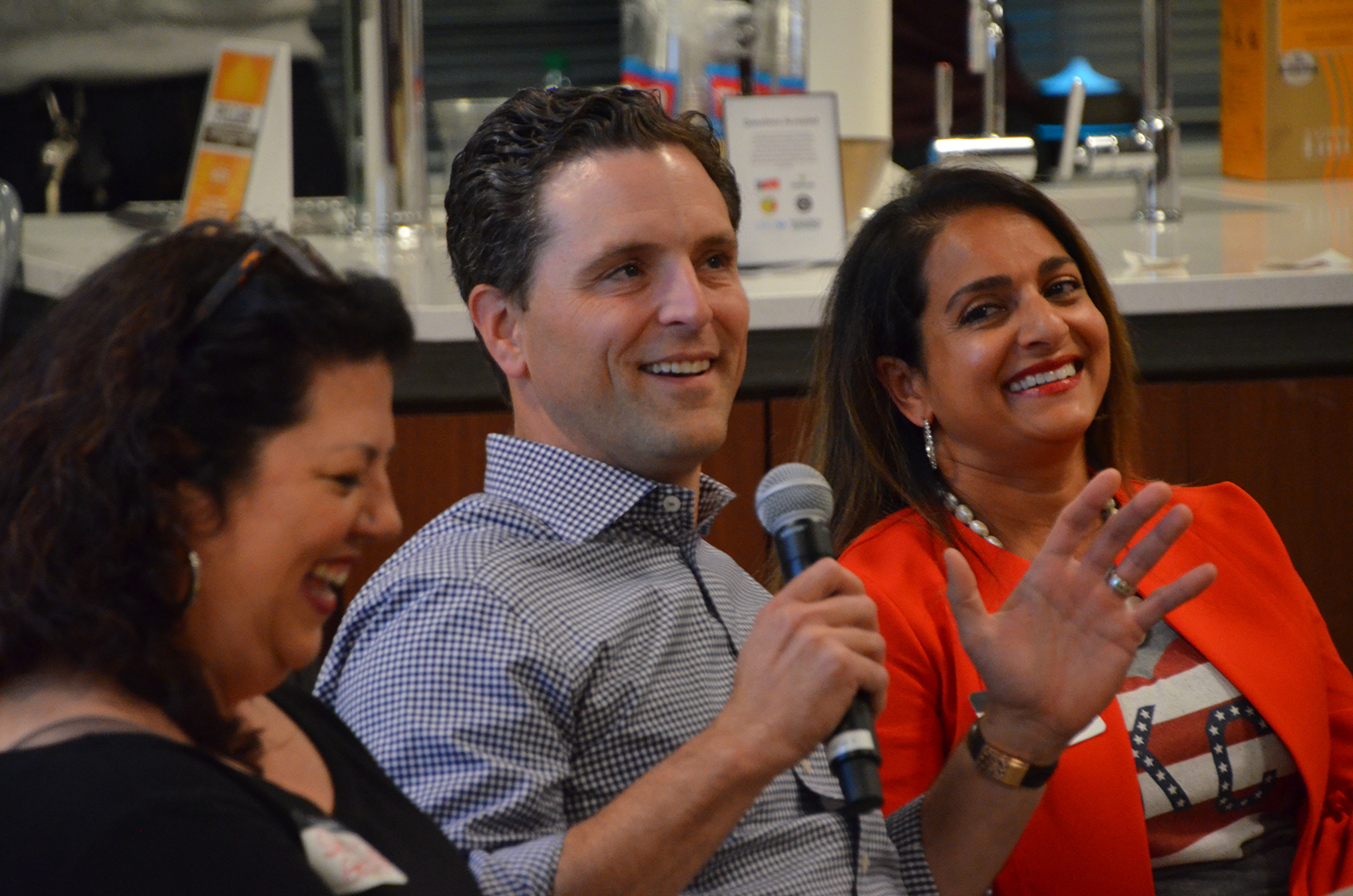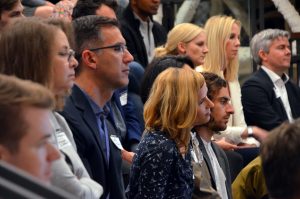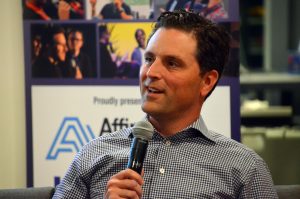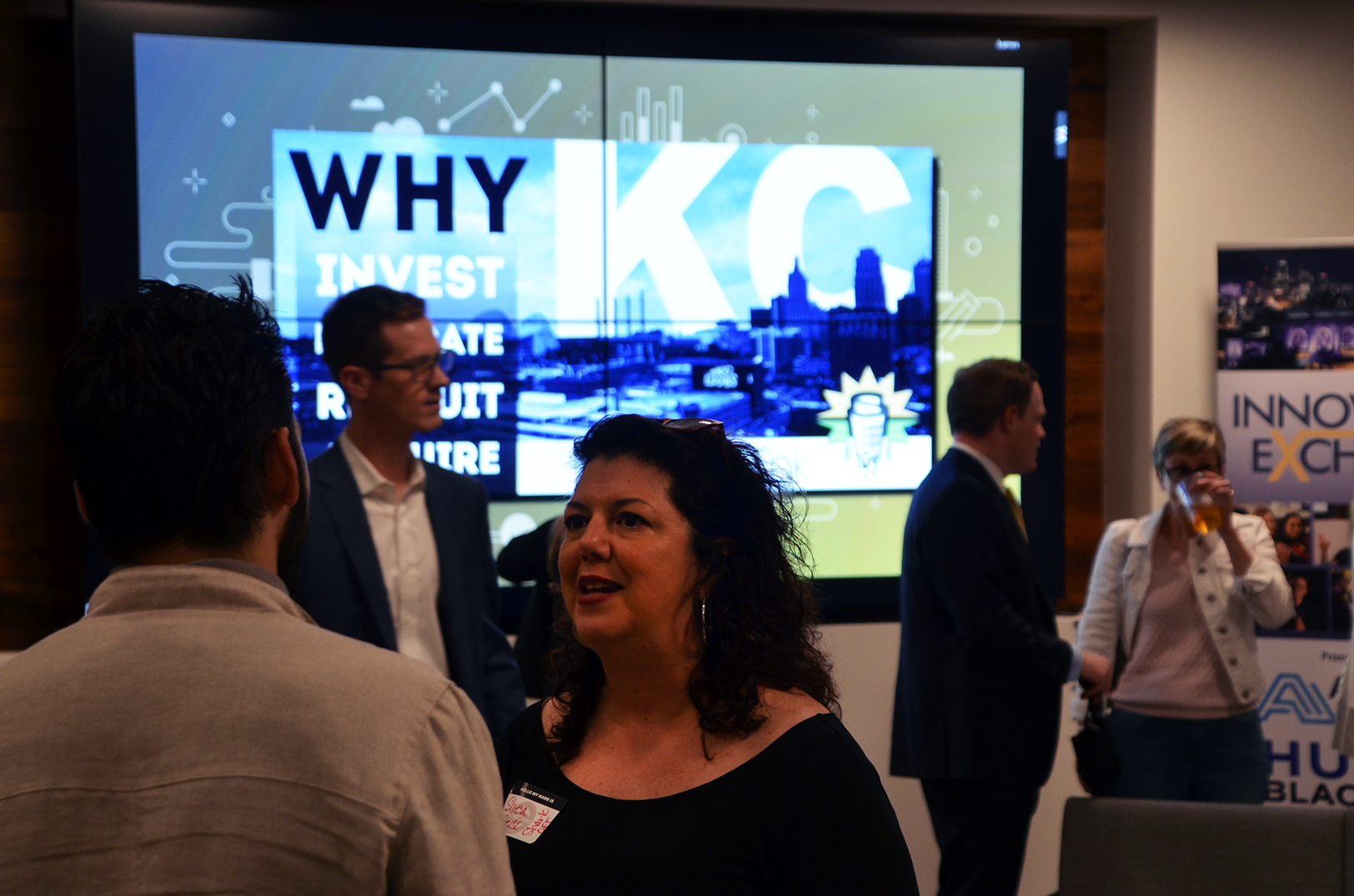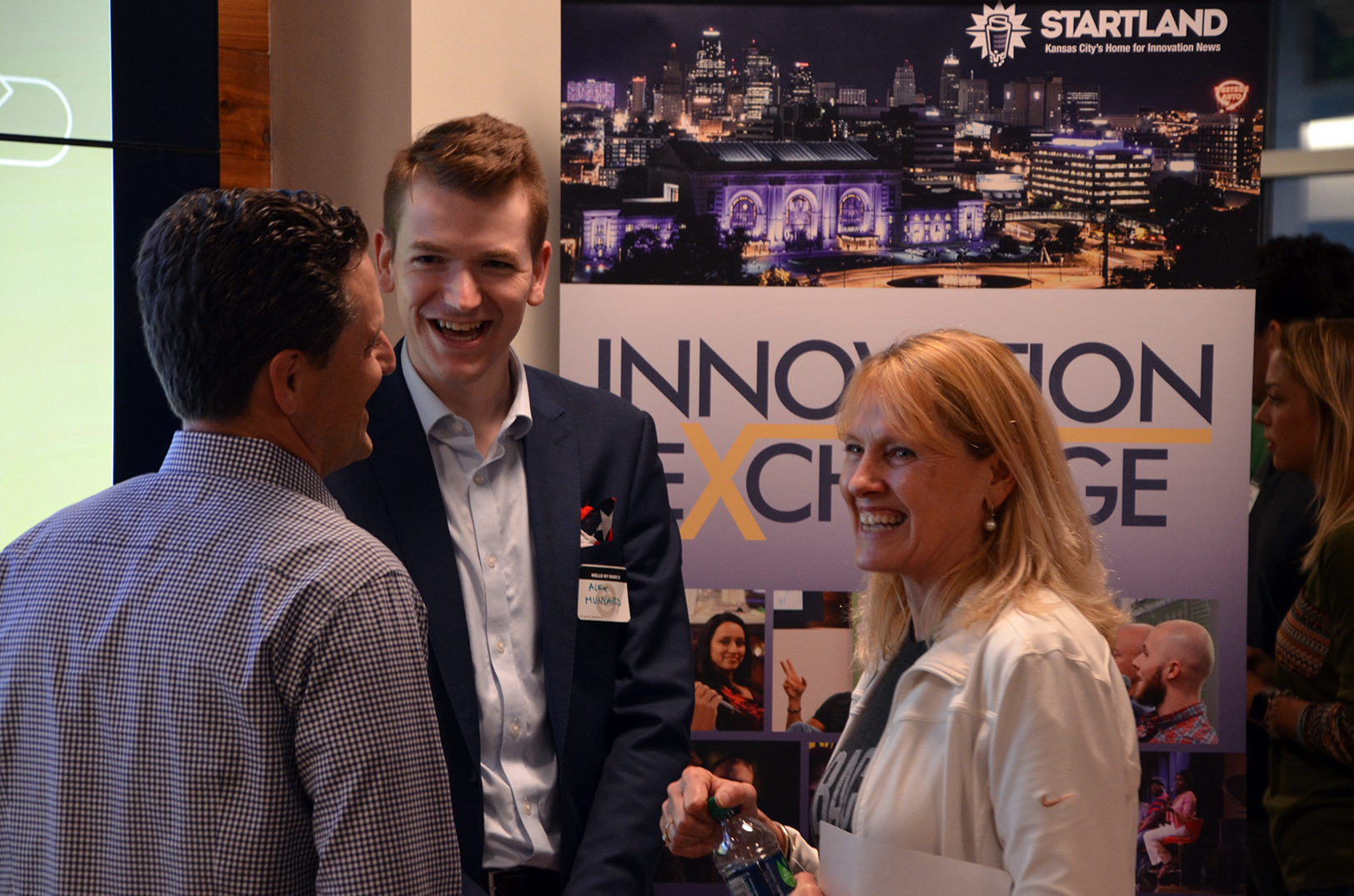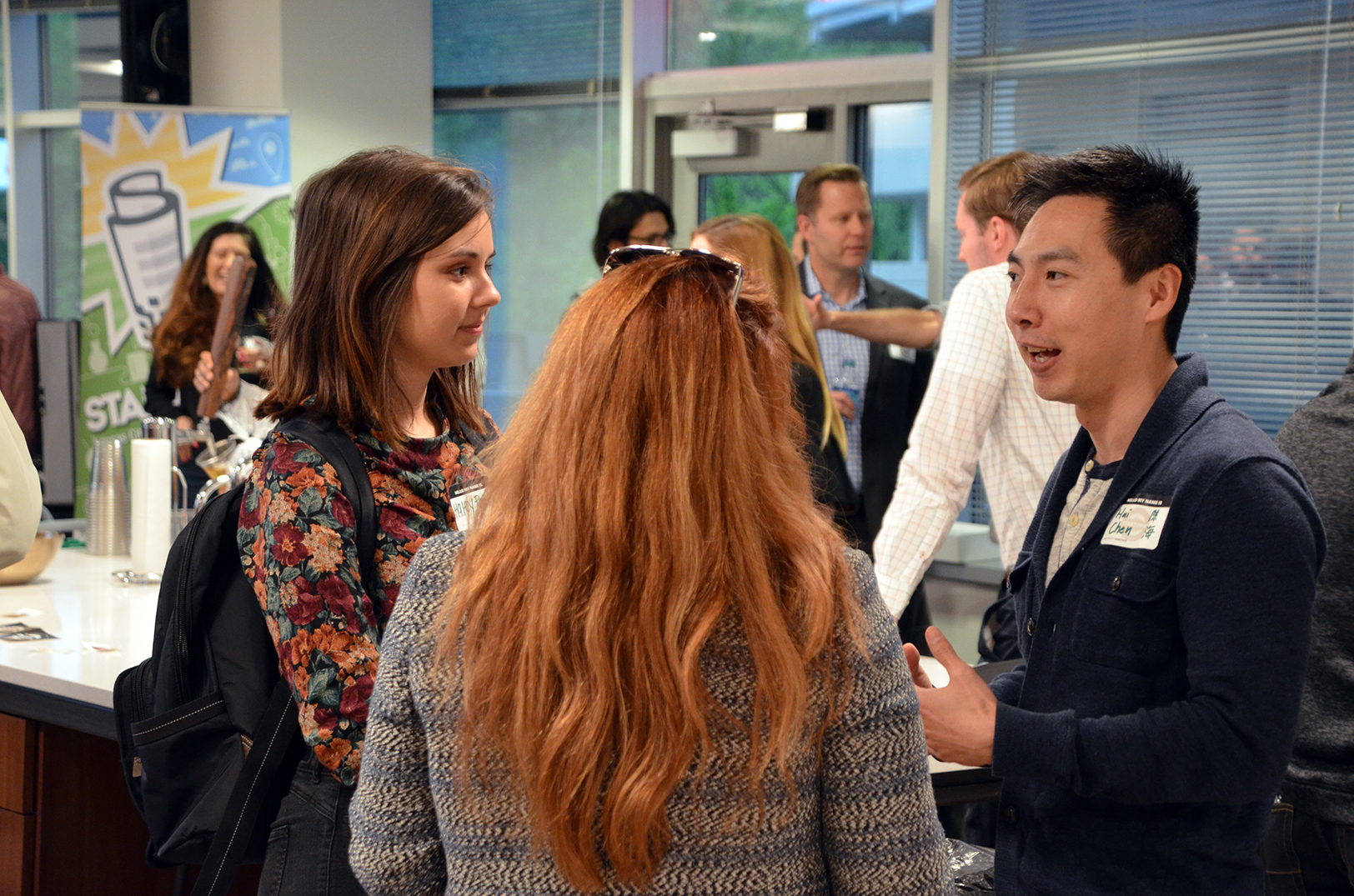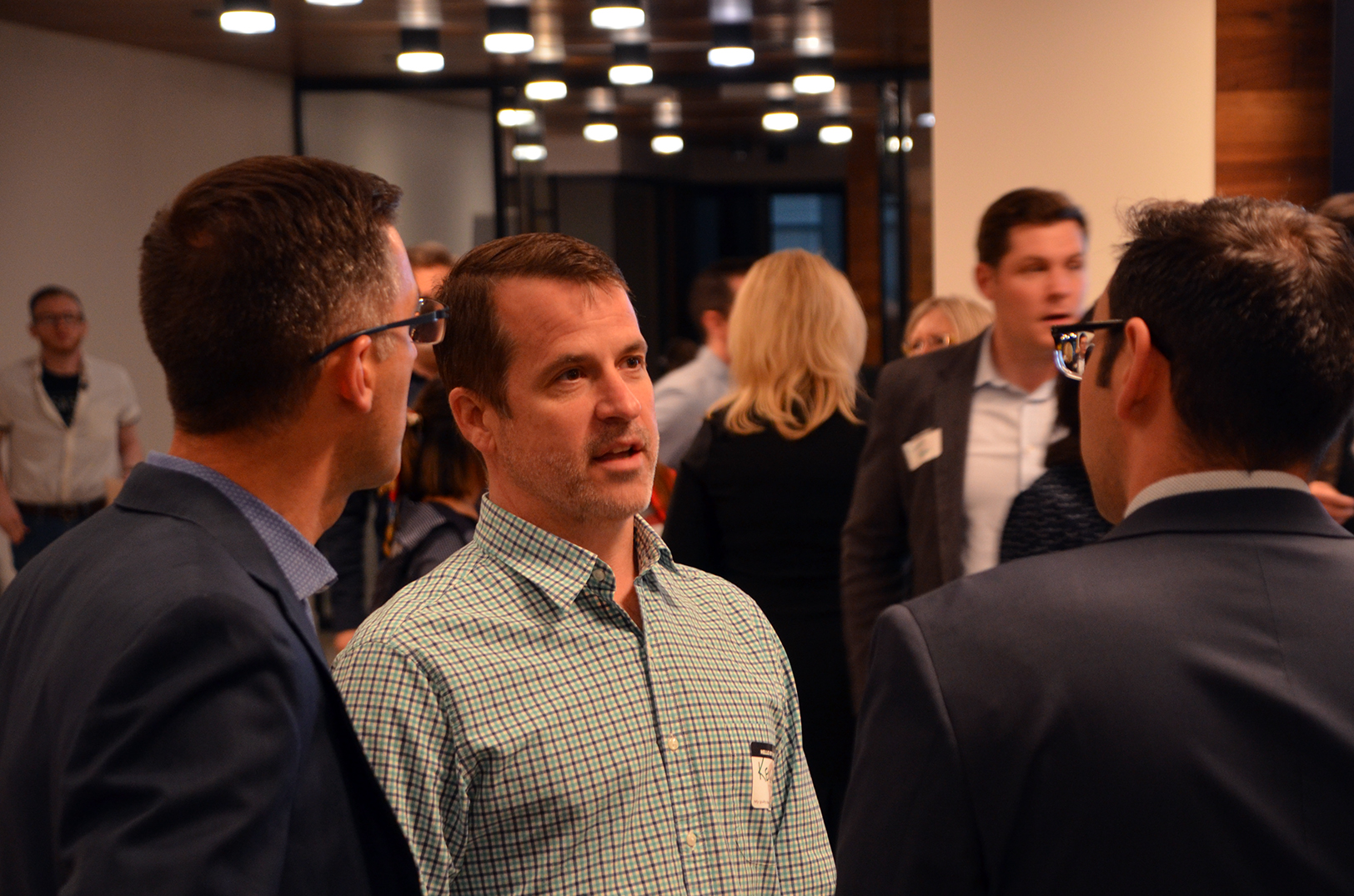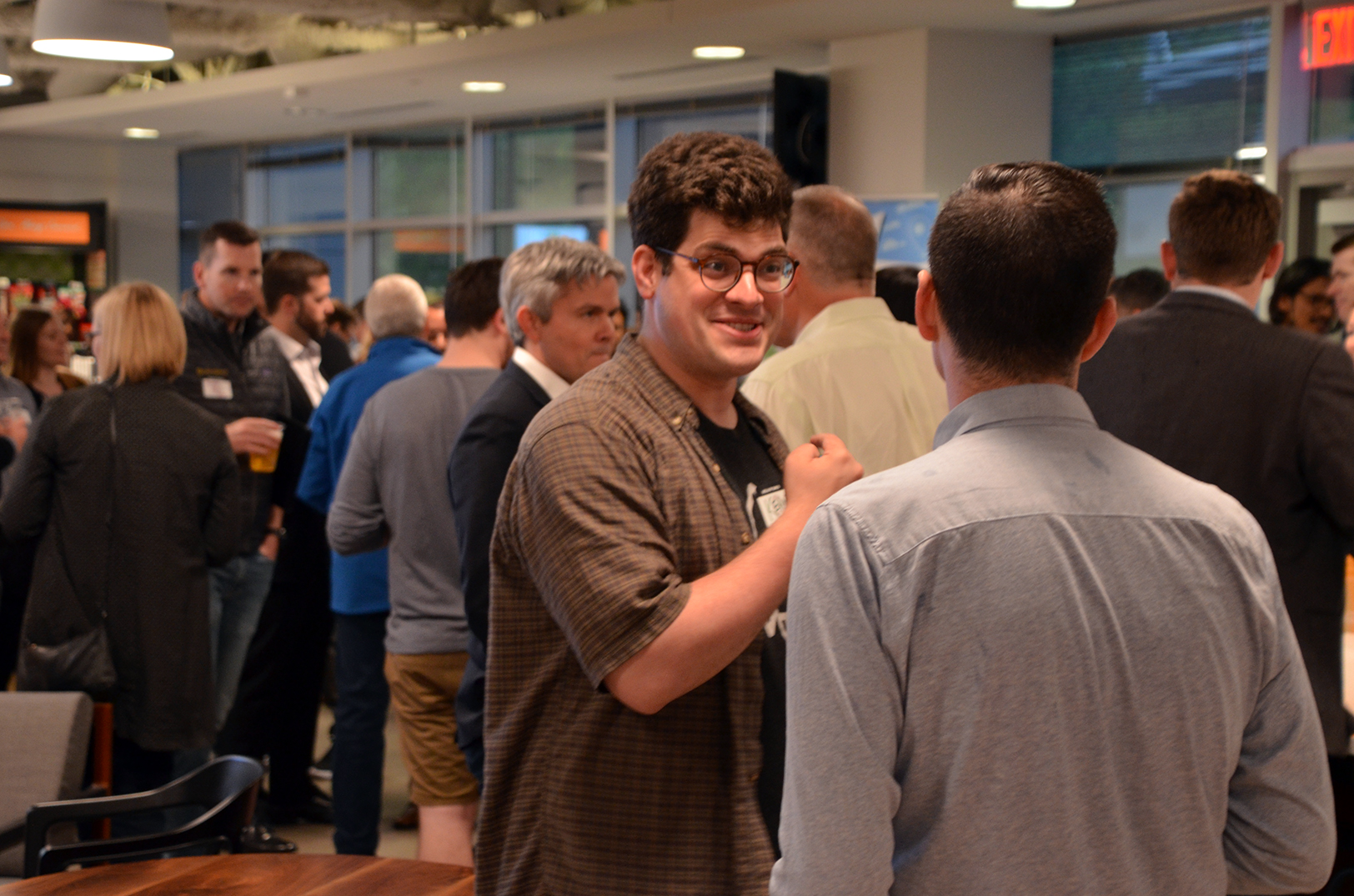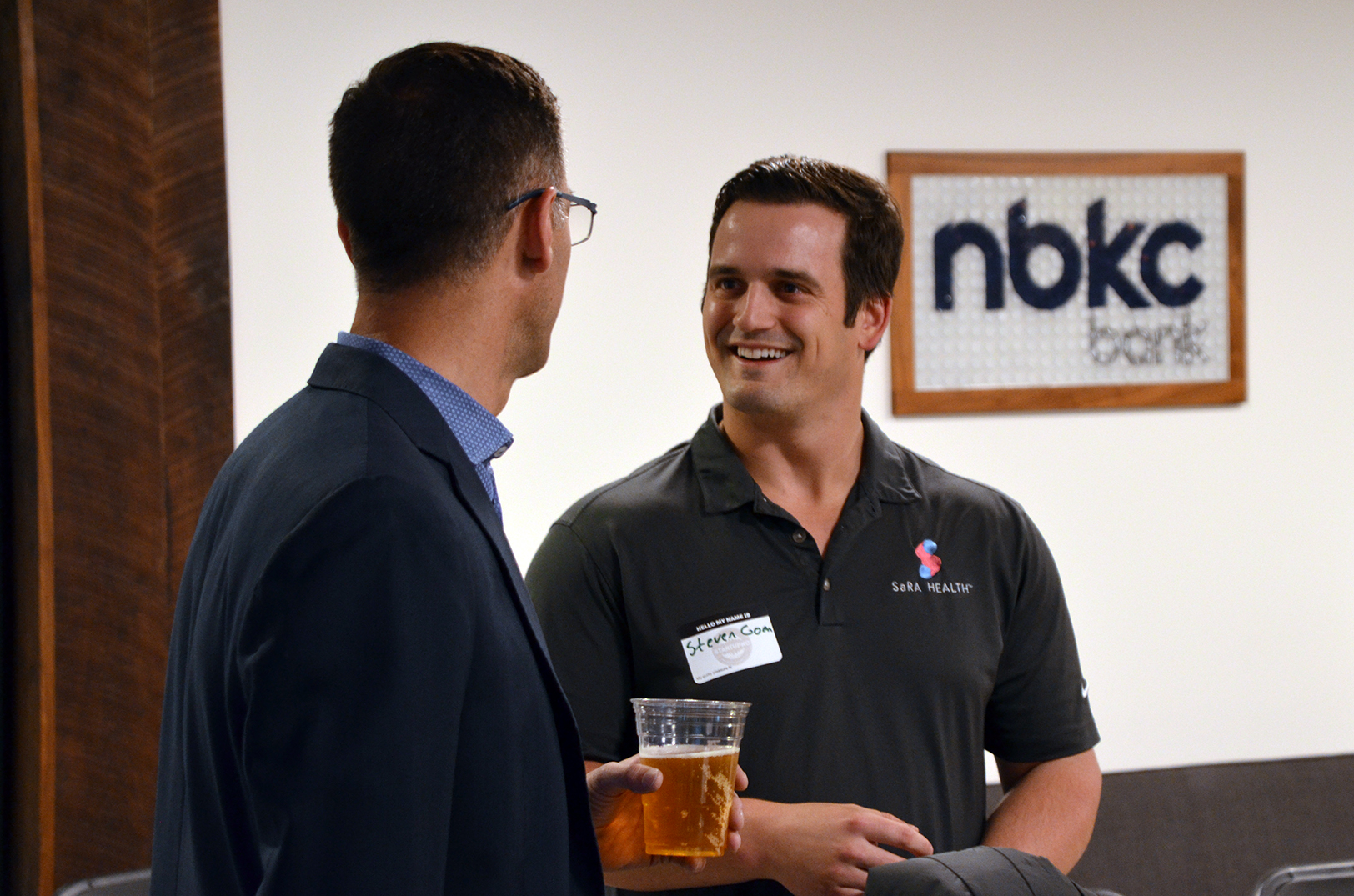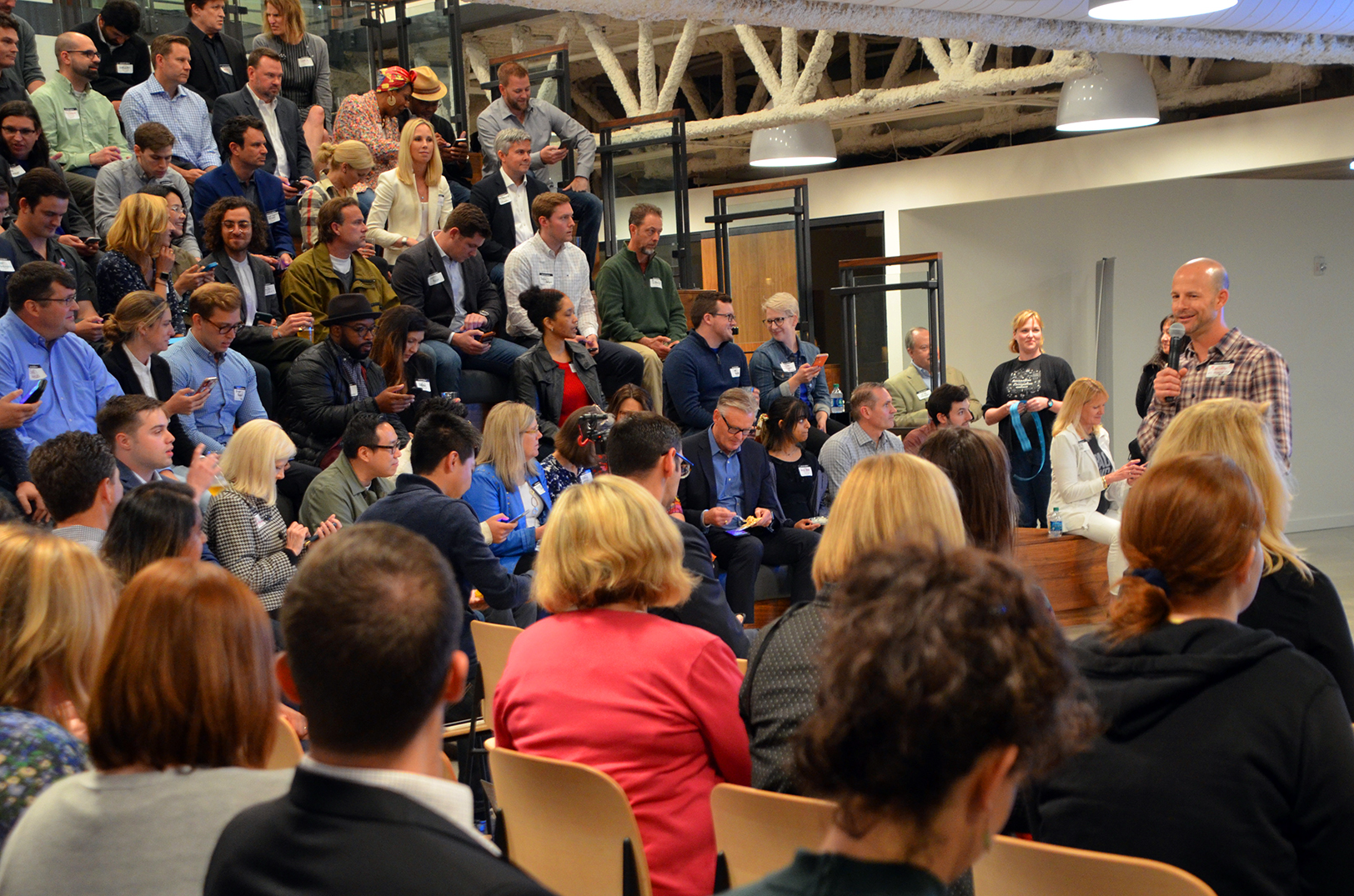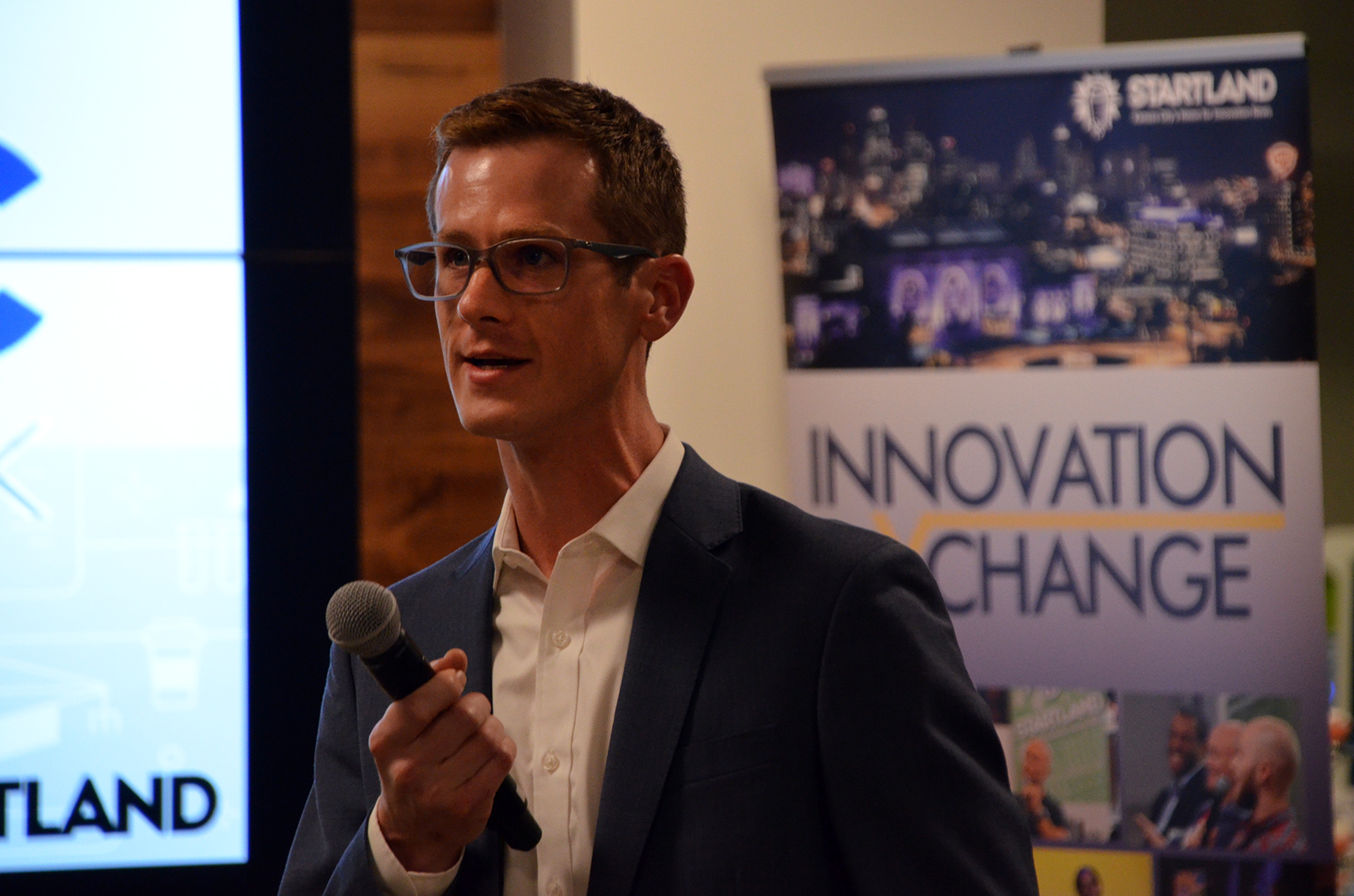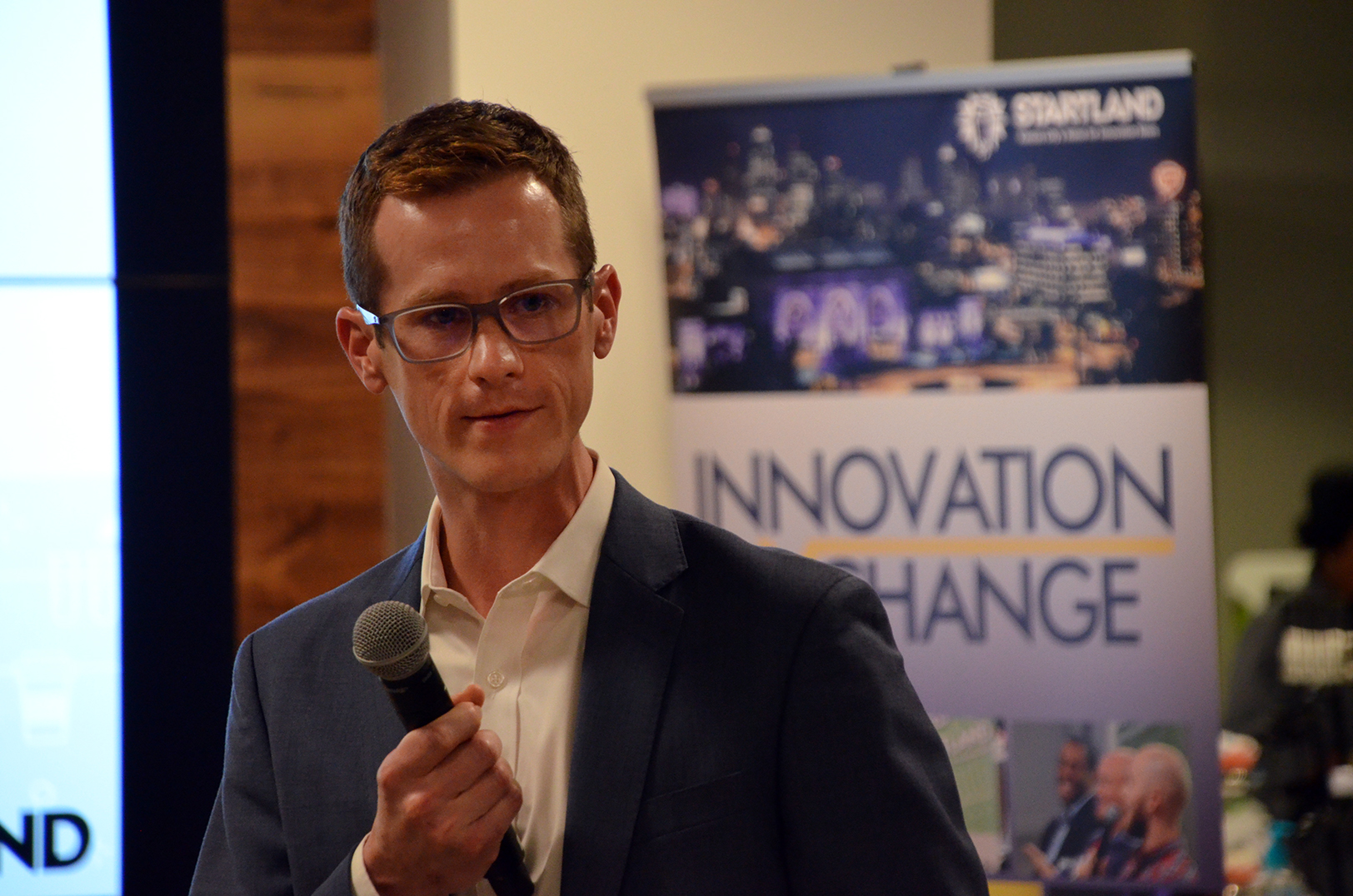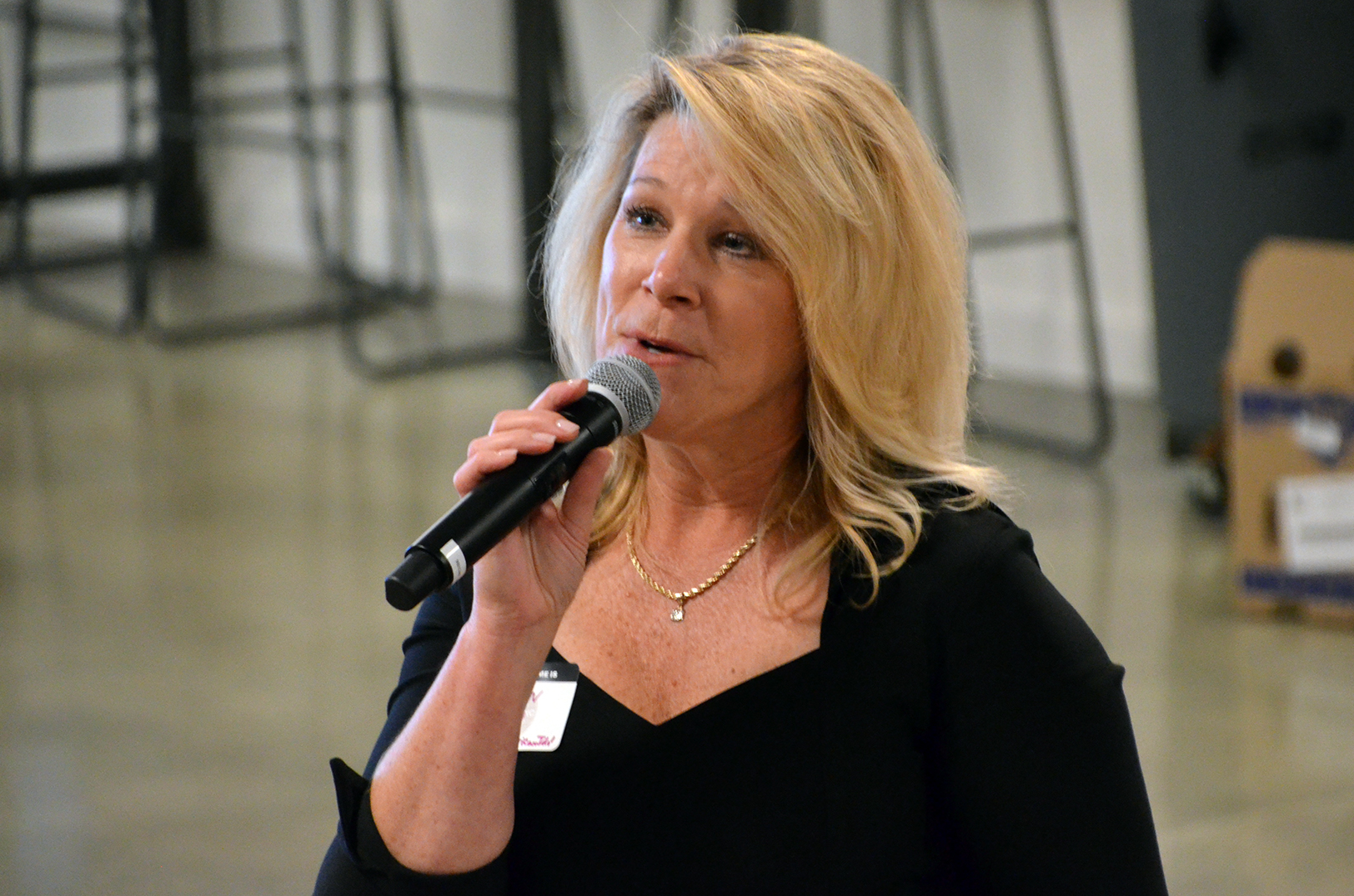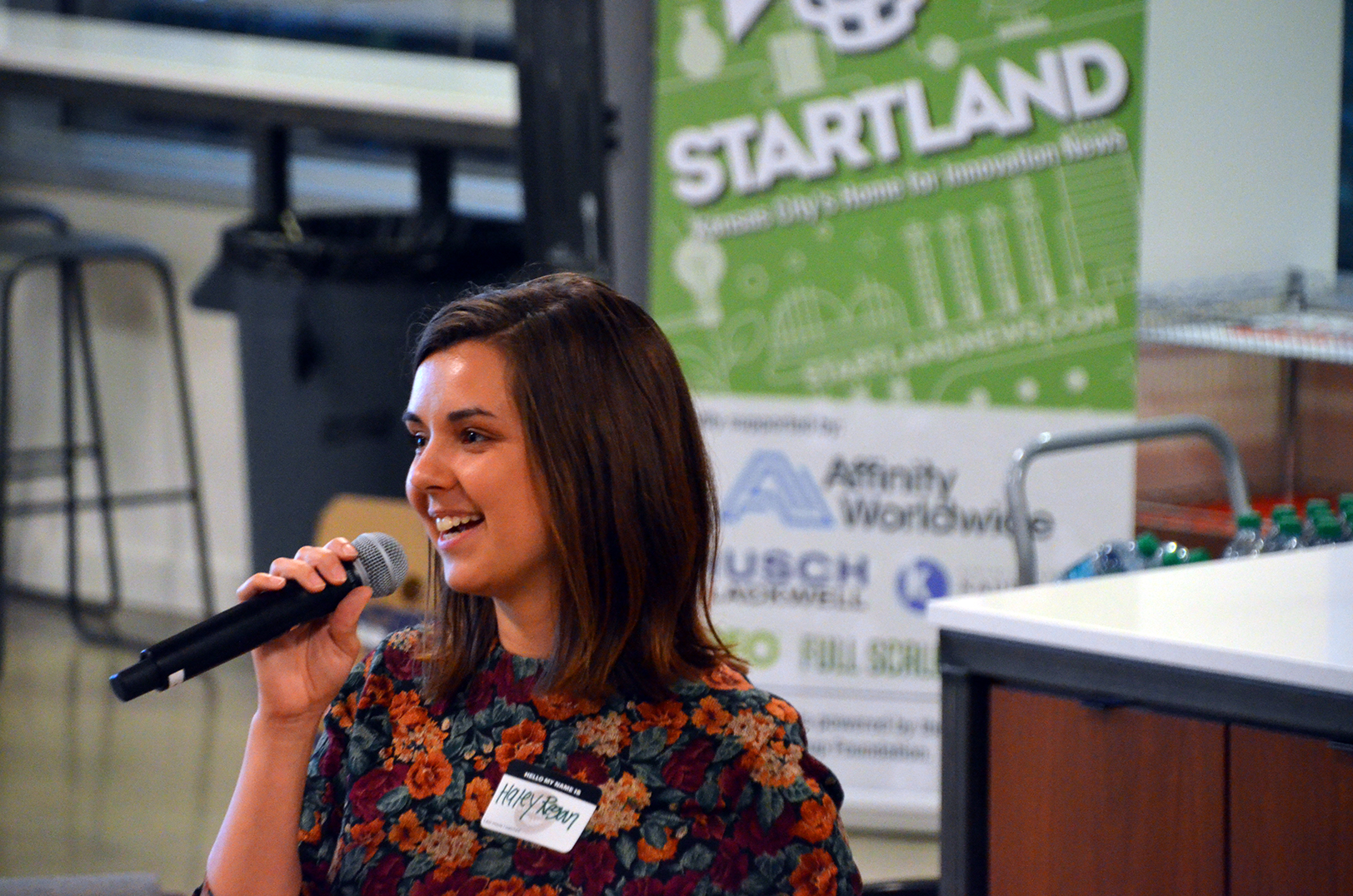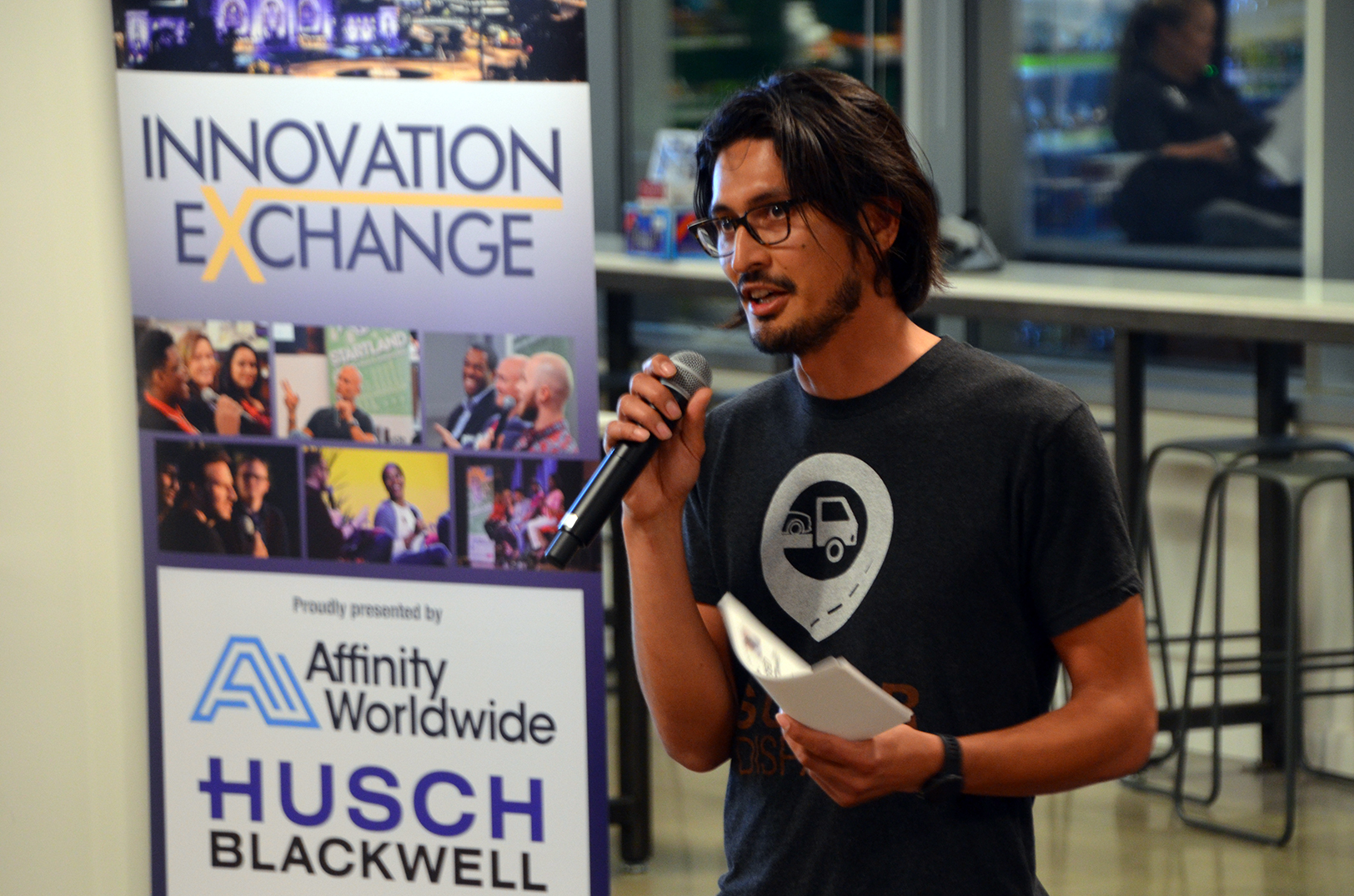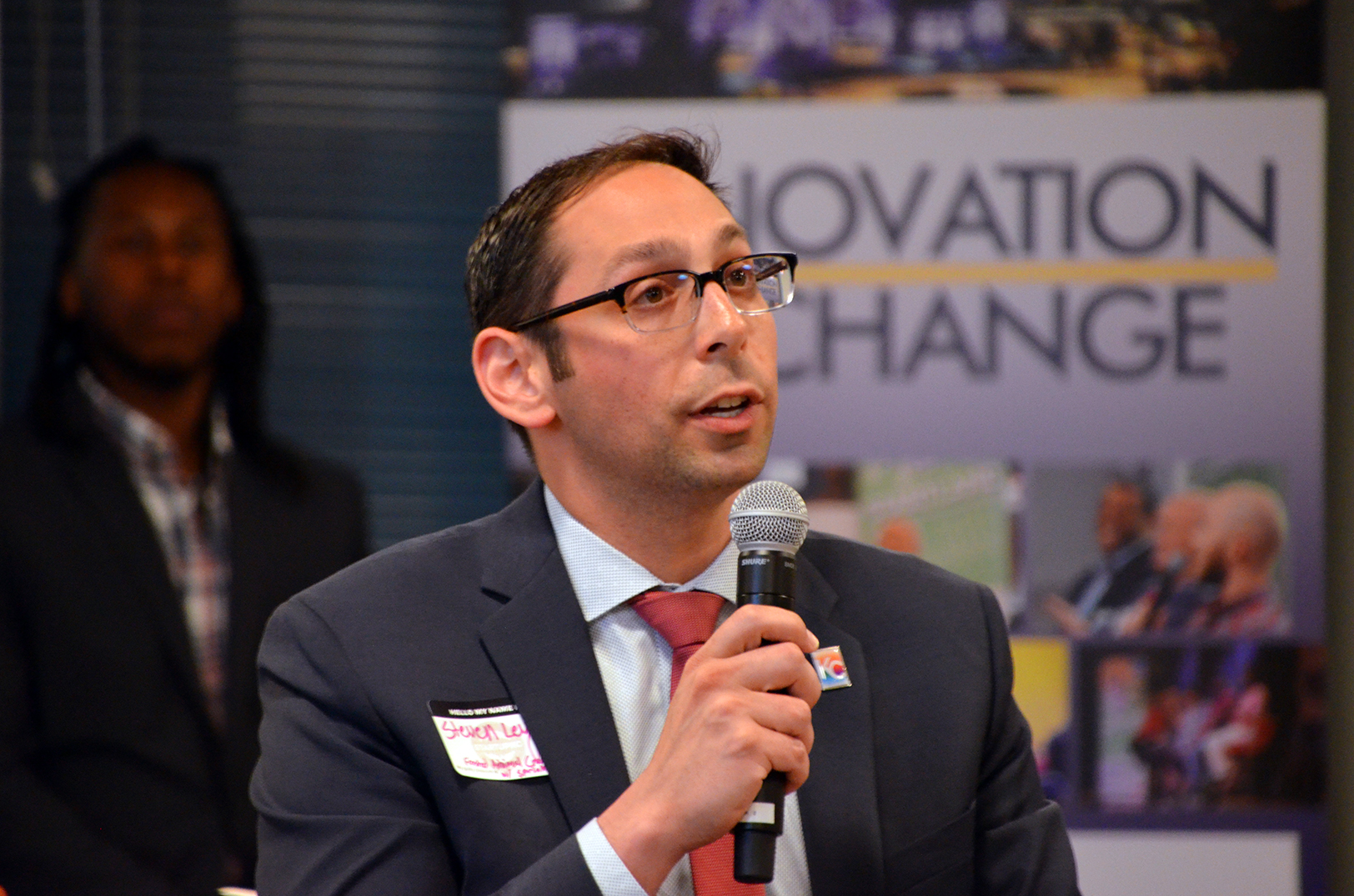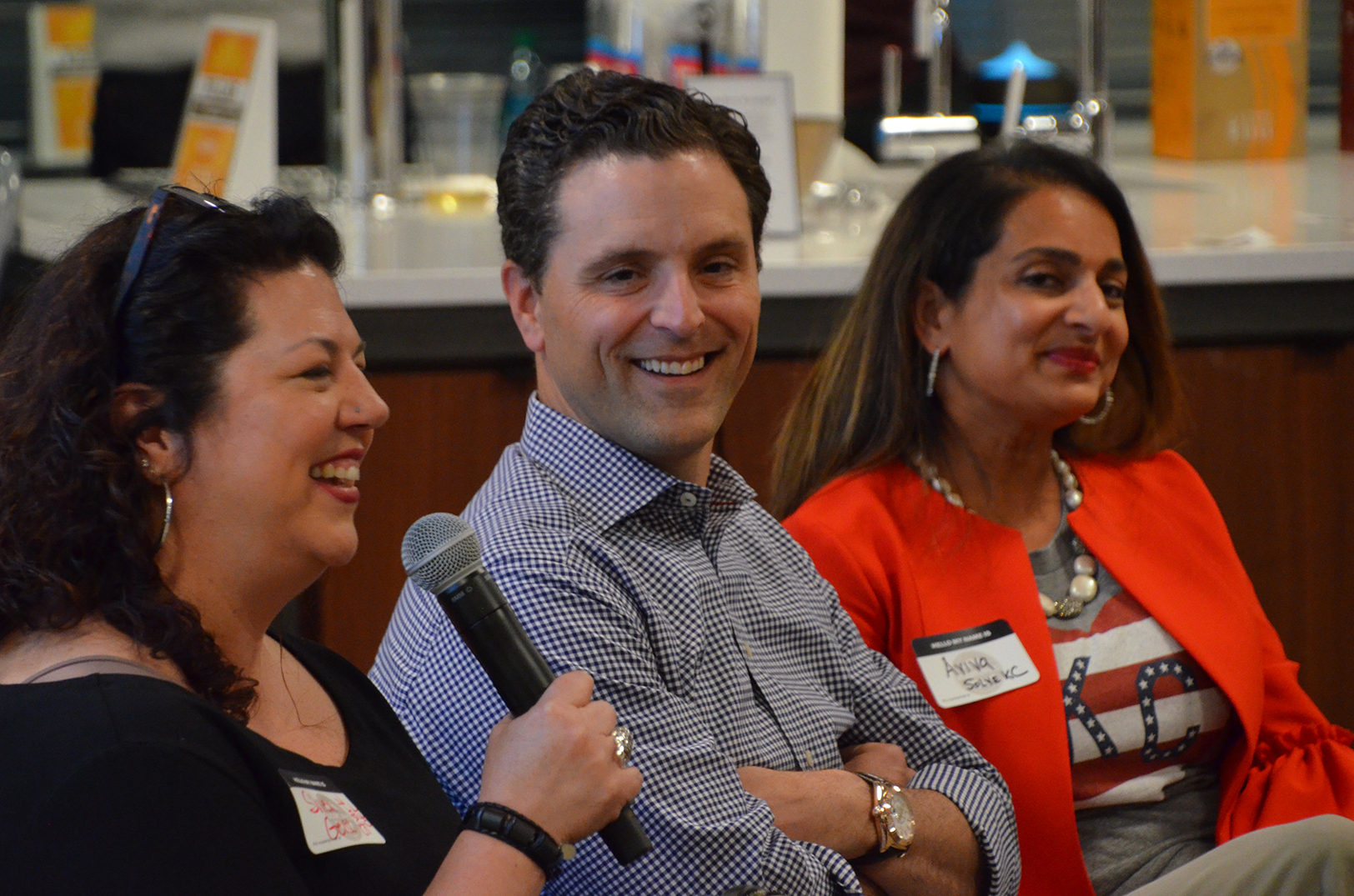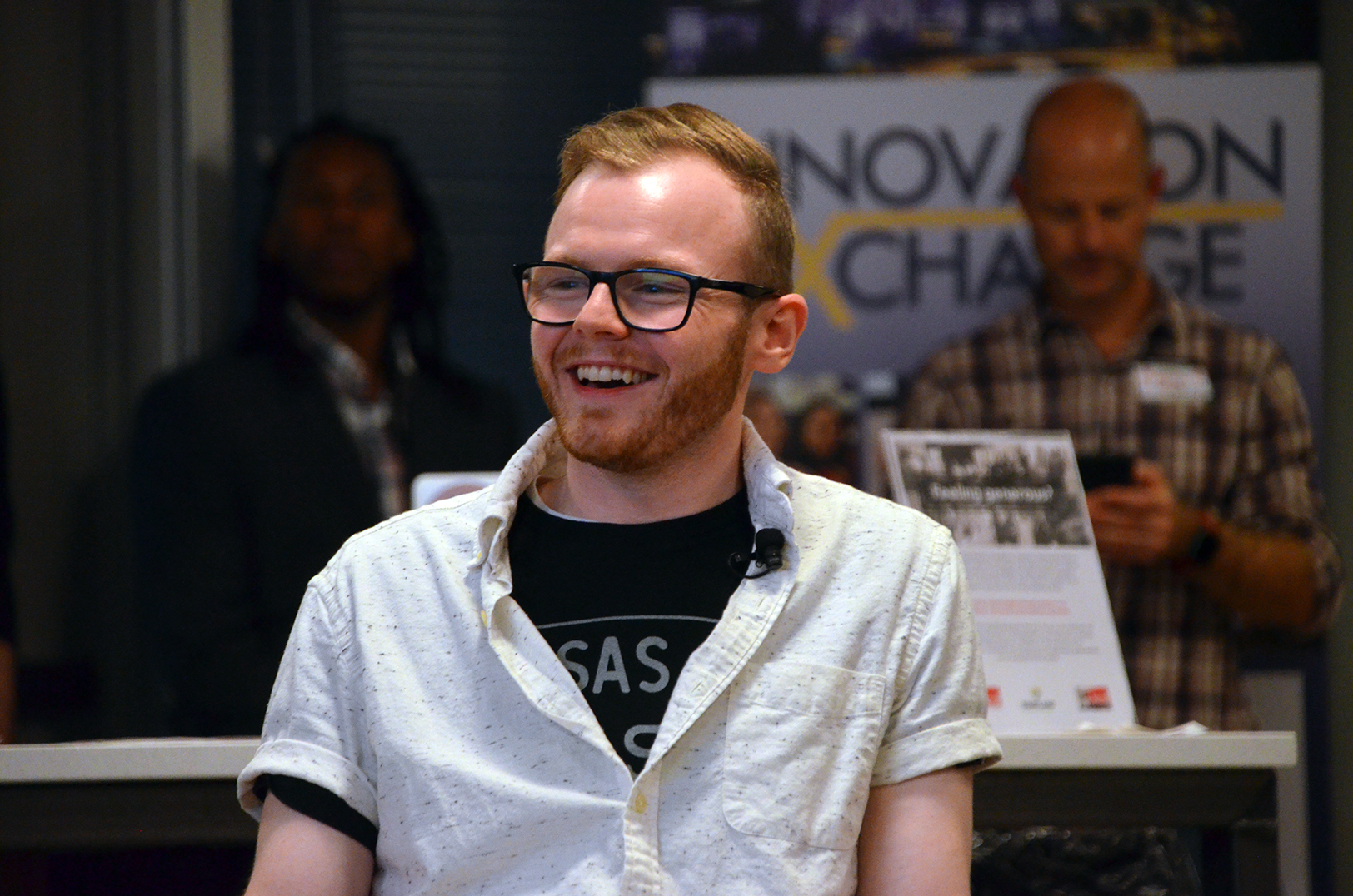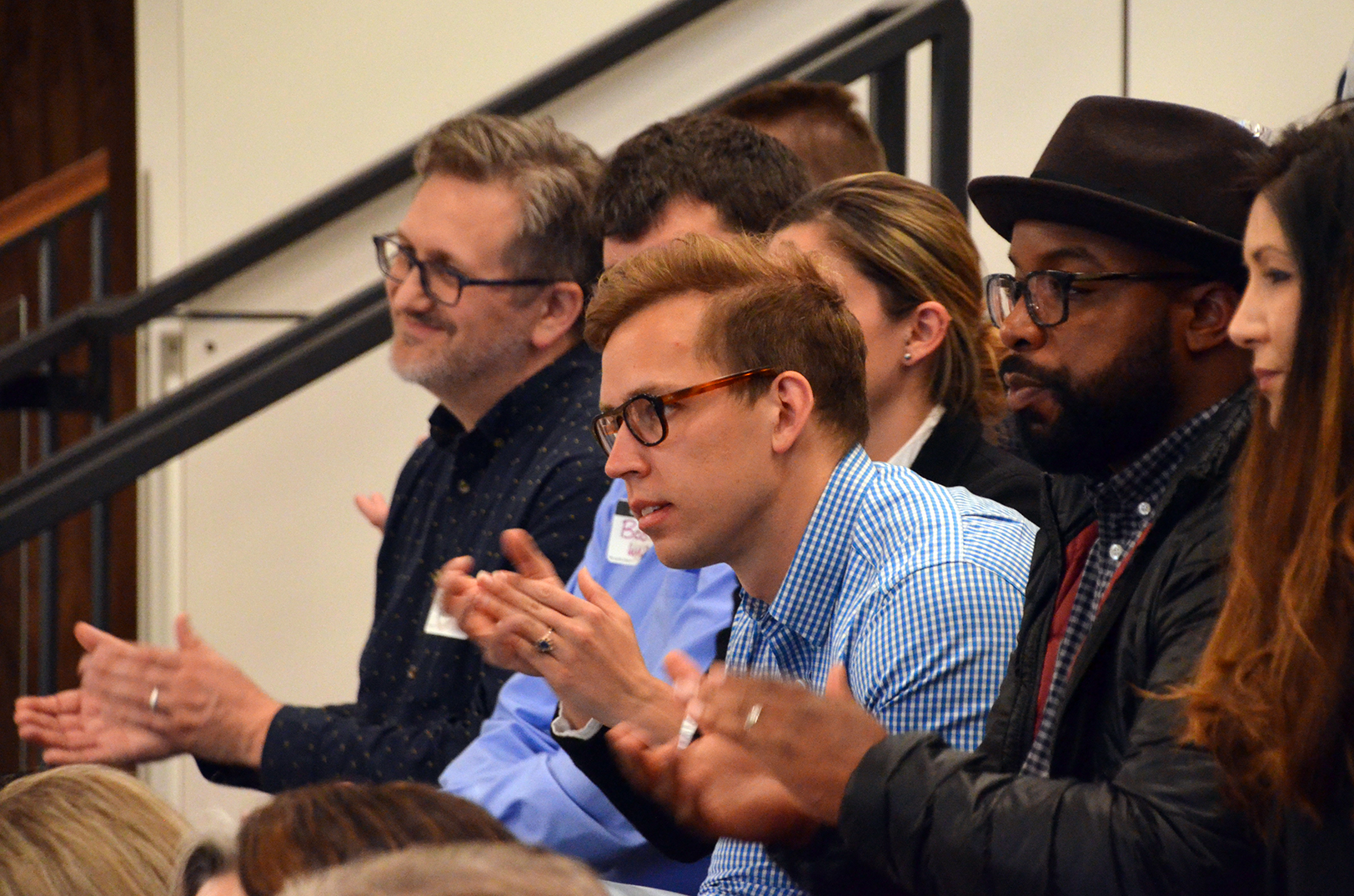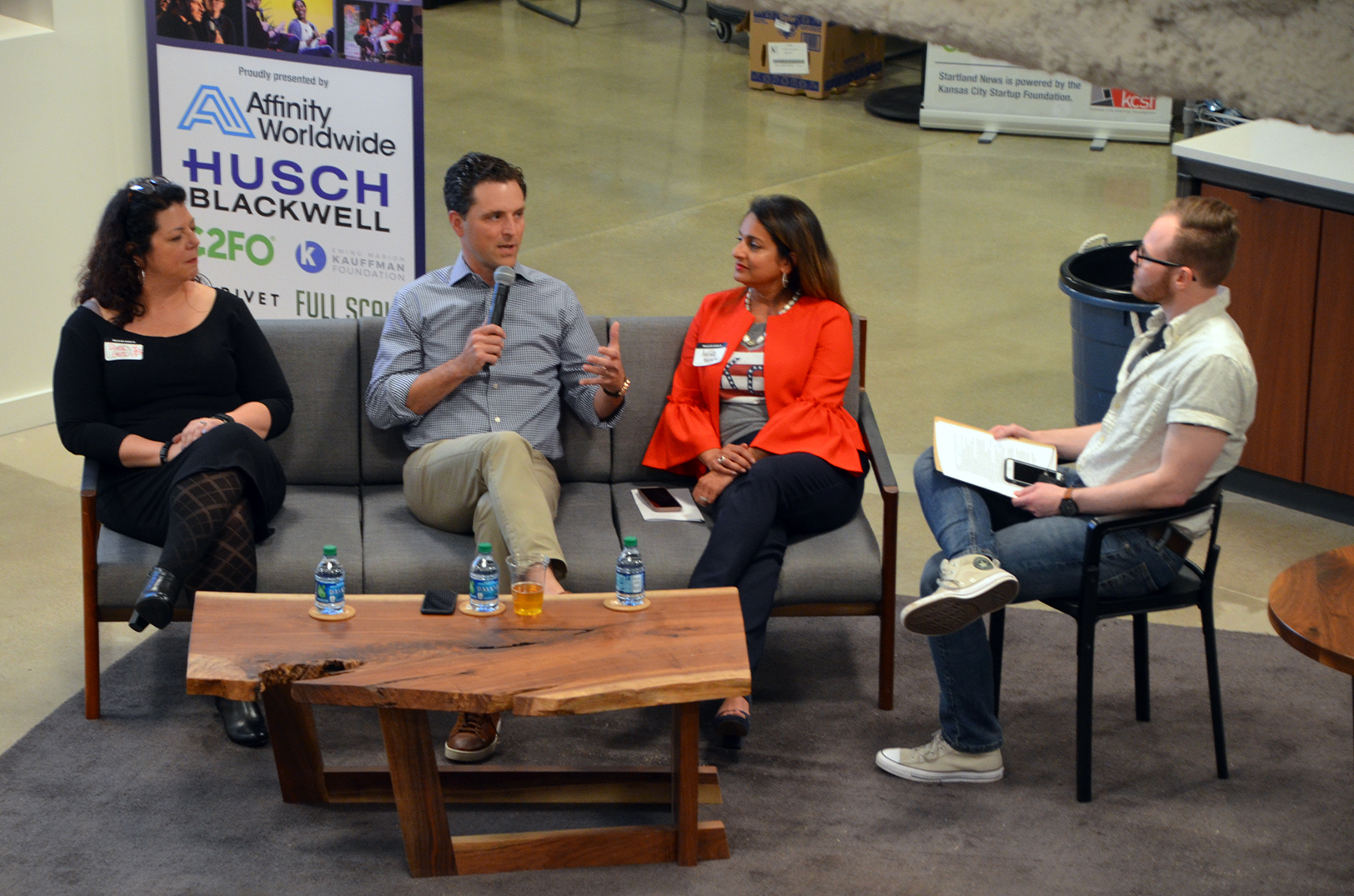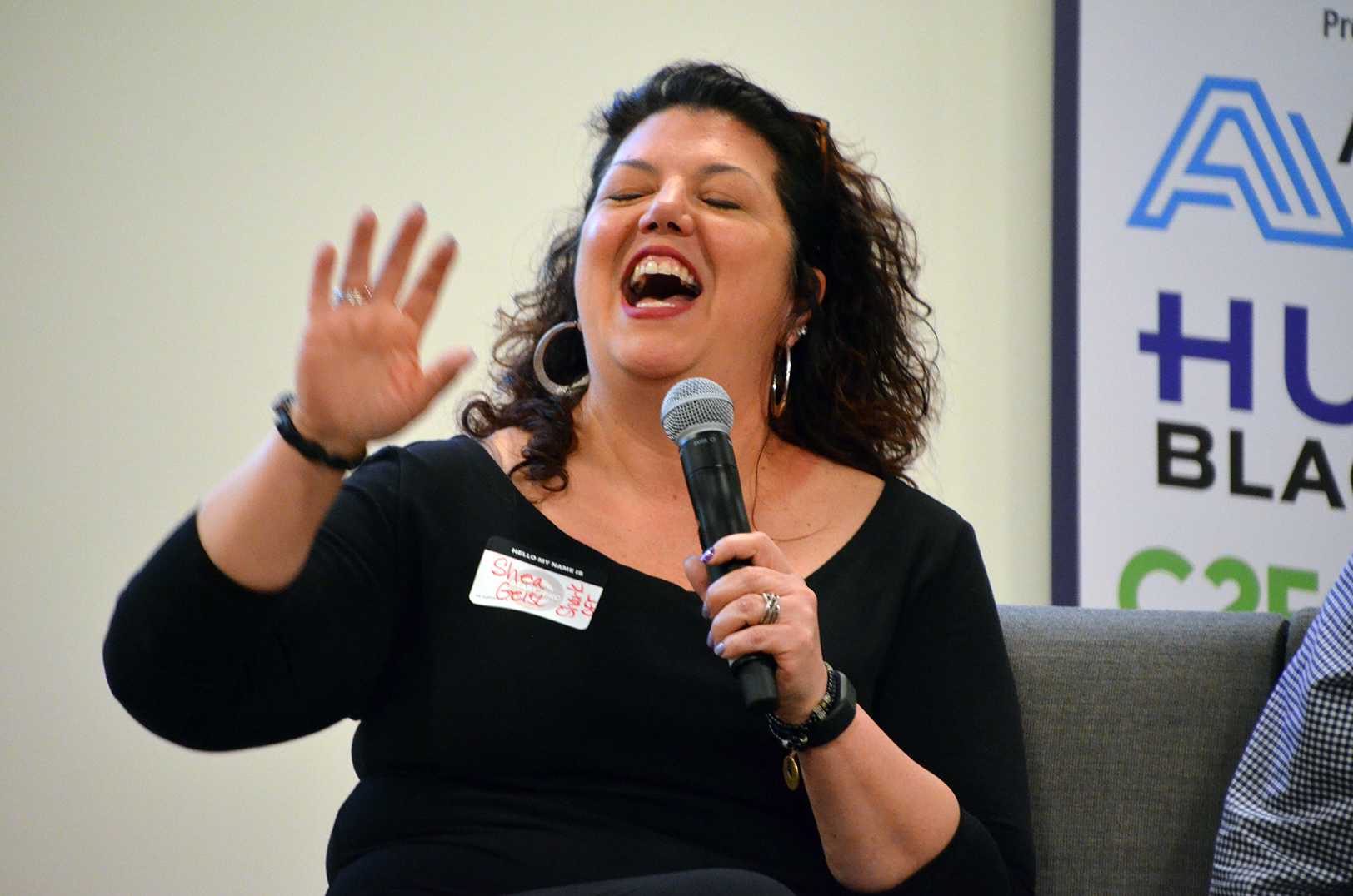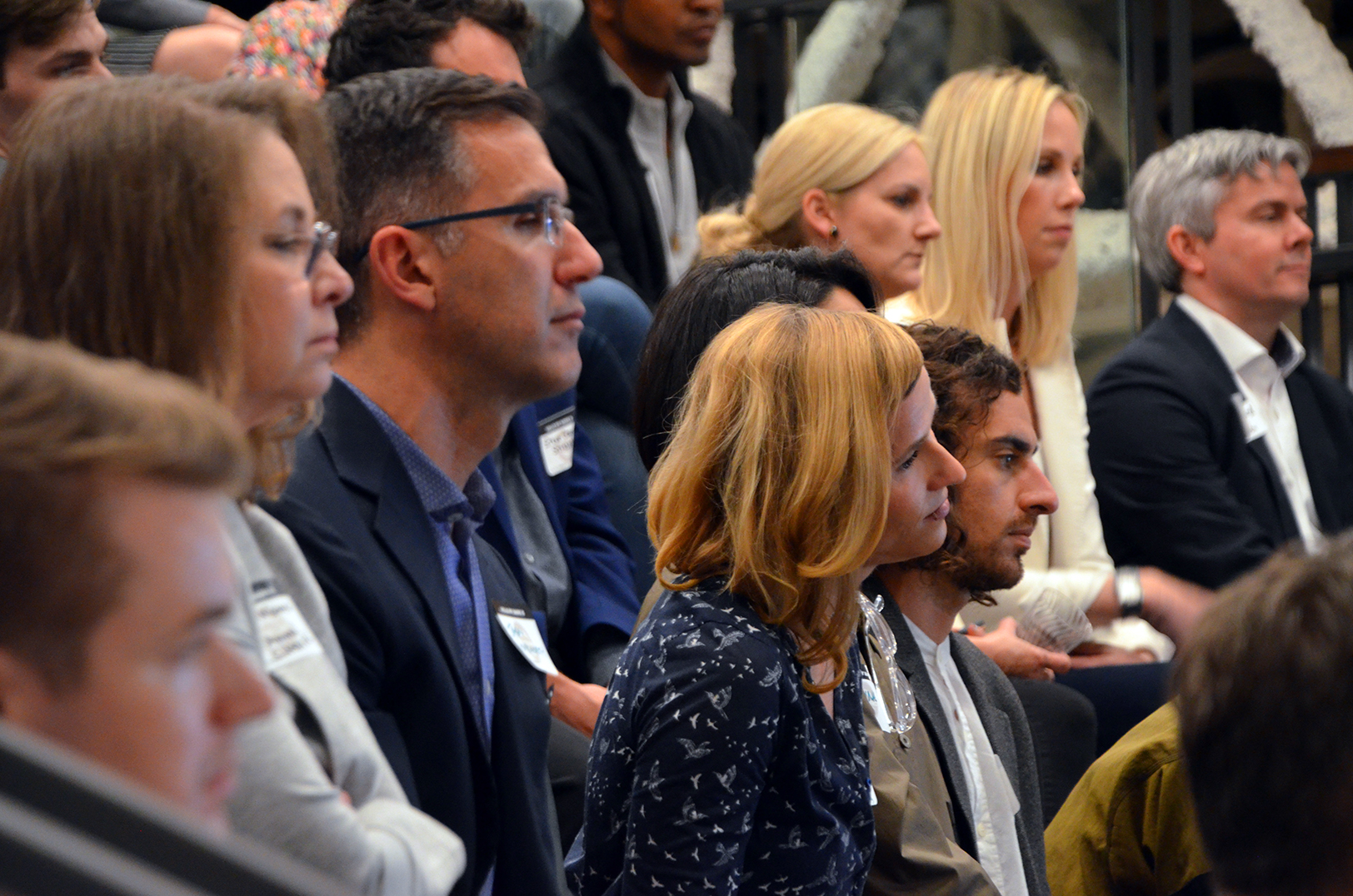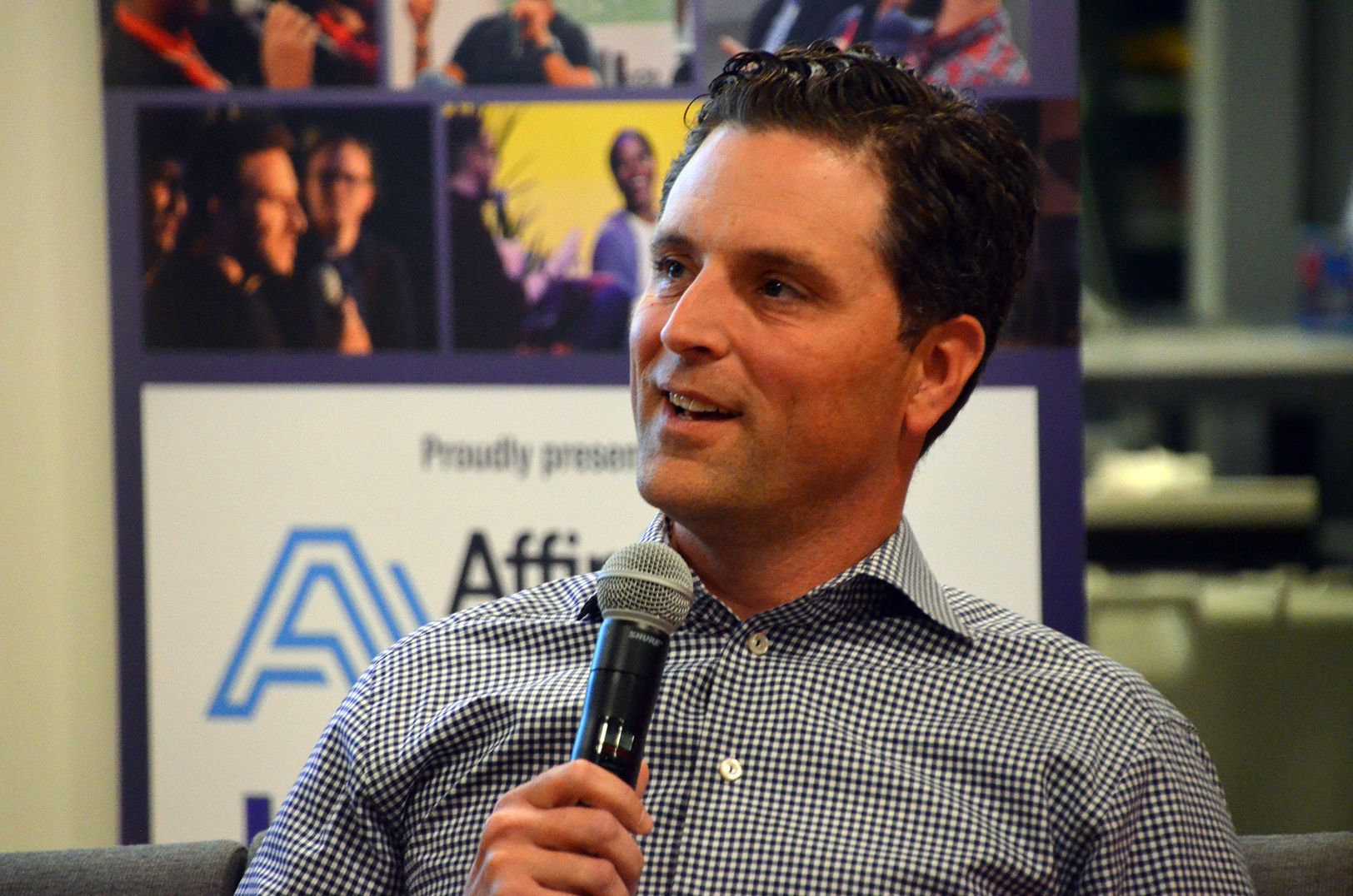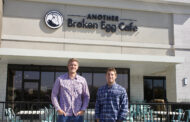Ambitious startups need to believe they can become Kansas City’s next billion-dollar company, said John Thomson, urging confidence — and the ability to roll with the punches — in the face of risk.
“Accomplished entrepreneurs who I’ve met … they just did it. Of course it was risky, and it might fail, but they went and did it anyway,” said Thomson, co-founder and CEO of PayIt, which announced a $100 million-plus investment in the GovTech startup in late March. “[At PayIt] how many times do we jump and then pack the parachute on the way down? Everything we do is different, so we’re constantly reimagining, and of course you’re going to make mistakes.”
When such failures inevitably occur, Aviva Ajmera added, founders should look for learning opportunities rather than slinking back into the shadows. Bigger risks ultimately equal bigger returns, she emphasized Monday at Startland’s Innovation Exchange at nbkc bank, where she spoke on a panel alongside Thomson and Shea Geist, CEO of SharkOFF.
“So let’s think bigger, more aggressive, and be OK with a little tumble here and there,” said Ajmera, founder of SoLVE KC and chair of Women’s Capital Connection, Kansas City’s only all-female women’s investing group.
Check out a photo gallery from Innovation Exchange below.
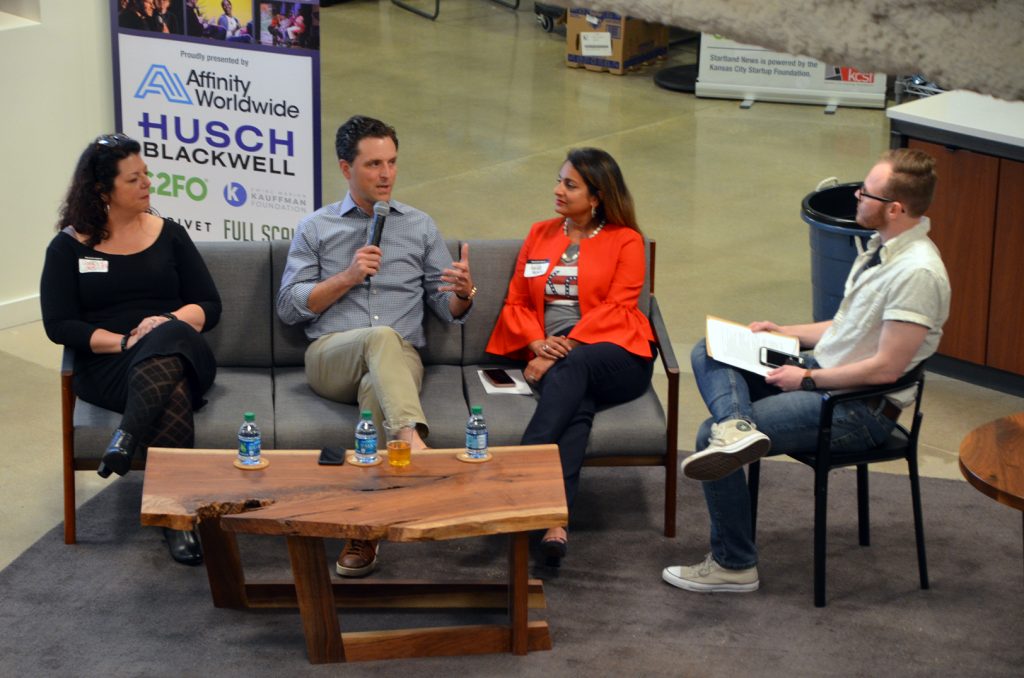
Shea Geist, SharkOFF; John Thomson, PayIt; Aviva Ajmera, Women’s Capital Connection; and Austin Barnes, Startland
Let’s be honest
Startup life hurts, Thomson said, and having a good idea — even a great one — isn’t enough to keep a company on track.
“There are days that just punch you,” he said. “But the people who make it are the people who are too dumb to quit, like me. Just keeping going. Don’t give up because you might be closer than you realize.”
Such perseverance must be balanced with a realistic mindset that’s open to criticism, Thomson said.
“You know, Kansas City is ‘nice.’ You hear that all the time,” he continued. “I kind of bristle at that — because being nice doesn’t help you build a big business. It might make you feel good, but you need really direct, candid feedback. You need to know what works and doesn’t work. You need to build something that can scale and last.”
“The best feedback you can get is when you just pick up the phone and talk to somebody you think could be a customer or a client, and just try to sell it to them,” Thomson added. “The idea is the easy part, right? You don’t really have anything until someone will sign a contract or write a check.”
Companies that are in it for the long haul — like PayIt — also shouldn’t jump at the first sign of an exit if they believe in their path to becoming Kansas City’s next big success story, Thomson said.
Click here to read about PayIt’s plans for its recent $100 million-plus investment.
“The problem with the Midwest is that companies aren’t ambitious enough. So the first opportunity for an exit — $20 million or whatever it is — people take it because that changes your life, right? It would change any of our lives,” he said. “But if we start being more ambitious, the ecosystem will really thrive because we’ll start producing bigger outcomes. So to that extent, everybody ought to be doing everything to help everybody. We need to have some concentration around those businesses that could become the next Cerner or better … I’m competitive.”
The impact?
“It’ll mean cascading benefits for everybody,” Thomson said.

Aviva Ajmera, SoLVE KC, Women’s Capital Connection
Why KC?
Monday’s Innovation Exchange panel explored the geographic link between startups, investors and tech leaders recently making headlines with hefty investments from the coasts, high-profile relocations to the metro, and unexpected exits.
[pullquote]In the news
• Experts: Coastal VCs getting FOMO on Kansas City; PayIt’s $100M+ investment proves it
• BacklotCars parks another $25 million in Series B round led by NY-based investor
• Scollar aims to fetch 200 jobs for KC, trades Silicon Valley for Animal Health Corridor
• ‘More is better’ TrueAccord CEO says as Silicon Valley startup plans for 150 KC jobs
• Zego exit, investment wins reflect critical need for startups to look outside KC, co-founder says
• $18M buyout of TomboyX shares shows investing in women pays off, says Women’s Capital Connection
[/pullquote]It isn’t necessarily because of Kansas City itself turning heads, said Thomson.
“The company happens to be in Kansas City. Investors expect a return. They’re looking for big, scalable, durable businesses,” he said. “You’ll hear the phrase ‘escape velocity’ — those that can turn into the next Fortune 500 company in a market or a category. It’s all about the execution of the business, the growth trajectory and how investable is that team and business.”
That said, Kansas City has built a resource-rich community and business network conducive to helping such companies thrive, added Thomson and Ajmera.
“One of the aspects for entrepreneurs and investors that’s so very strong in Kansas City is the ecosystems of accelerators and incubators, big companies creating programs to help, and the investors themselves sharing great deals and opportunities,” Ajmera said.
Kansas City already has much of what startups need to build a billion-dollar venture, Thomson said.
When a potential seed round investor offered PayIt three times what he was attempting to raise, the offer came with a condition that Thomson move the startup to Austin or the Bay Area because Kansas City didn’t have enough talent, he recalled Monday.
“I have a chip on my shoulder, if that hasn’t come across, and I know you can build a business anywhere,” Thomson said. “So I said, ‘Hey, we have the internet here too.’”
But can Kansas City really land top talent?
Again, it’s all about the company, Thomson said. Potential employees are looking at the same details as investors: mission, scale and growth, he added.
“They’re investing their career in the opportunity, and then it’s a lot of times a pleasant surprise how great the city is,” Thomson said. “They’re coming for a reason, and oftentimes stay here for a different reason.”
Eventually, however, Kansas City’s profile could rise to the point that the city itself is a big draw — and at the top of mind for tech talent entering the workforce, Ajmera said.
“I would love for Kansas City to be one of the top cities that college graduates from all over the country want to come to — to work, to build businesses, to live,” she said. “Not LA, San Francisco, New York or Chicago. But Kansas City.”





